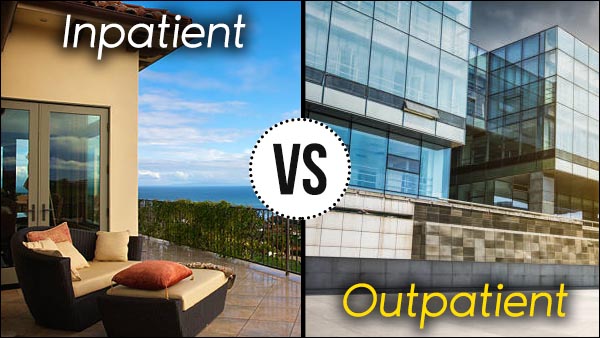Finding help for an addiction can seem like an overwhelming process, particularly when you’re not sure what type of rehab will work the best for you.
If you’re ready to seek out help for your substance abuse, then you’ll need to decide which type of program is the best for you. If you’re unsure, then you’ll first need to qualify what your specific needs are. We’ve put together a list of questions that can help you figure out which type of rehab will be the best for you.
Ask Yourself These Questions to Help You Decide
In order to determine which option is the best for your recovery, it is helpful to ask yourself a few important questions that can help you make a decision.
Do You Have Solid Support?
If your family and friends are willing and able to provide you with solid support while you go through your addiction recovery, then outpatient rehab is a great choice for your recovery plan. You’ll be able to attend a regular group meeting with other addicts and work on the suggestions offered in your meetings back at home.
If you’re not sure that your family or loved ones will be able to provide the support that you need to get and stay sober (and this does happen), then an inpatient facility is the right choice for you. During your stay in a residential inpatient program, you’ll be surrounded by mental health and addiction specialists, as well as other addicts that you can lean on for support while you get through the first few months of your recovery.
Do You Have a Dual Diagnosis?
Substance abused is often coupled with other mental health issues, such as severe depression or PTSD. If you’re looking for more sustained care for both your addiction and another mental health disorder, then you might want to consider an inpatient facility.
While some outpatient programs offer additional care for your dual diagnosis, not every facility or program does. If you plan to go for an outpatient program, be sure that they can offer the sort of care that you’re looking for. Often the two issues are connected, and untangling them can be a sticky process that benefits greatly from working with an experienced professional.
Will You Need to Detox?
If your addiction includes substances that could present substantial challenges when you undergo the withdrawal process (like long-term opioid use), an inpatient rehab facility might be the best choice for you. Inpatient facilities offer 24/7 supervision by trained medical professionals that will be able to offer treatment for your withdrawal if you need it.
In the case that the withdrawal symptoms potentially becoming dangerous to your health (and they can if your addiction is severe enough), then an inpatient program will provide the care that you need to see that you can get sober safely.
Is the Addiction Serious?
If you are suffering from a long-term addiction that has lasted multiple years, then an inpatient facility is the better route for you. Inpatient treatment programs involve 24/7 residential care that will provide a wide range of services, from supervised detox and abstinence from substance use to exercise and nutrition programs that can help you recover your physical health.
Outpatient rehab programs are not as intensive and are generally appropriate if your addiction is moderate or mild. However, if you find that you experience the constant urge to use and you’re not sure you’ll be able to attend every group session, then the better route will be an inpatient program.
Will You Be Able to Take Time from Work or School?
While outpatient rehab generally requires only 10-12 hours a week, inpatient rehab is an intensive, one-to-six-month commitment that will require you to be in the facility for the entire time. It means that you will not be able to work or attend school while you are in rehab. Outpatient programs will require you to attend regular group meetings that you can schedule around your work or school schedule, so if you are unable to take the time from work, then an outpatient program is the better program for you.
What Are You Able to Afford?
Certain programs can be more expensive than others, with inpatient programs generally having a higher bill than outpatient programs. The reason for this is that inpatient rehab facilities also provide room and board for the duration of your stay and is included in the cost of the program. Because outpatient programs are less intensive and don’t require you to spend a lot of time within a residential inpatient facility, they are less expensive.
There Is No “Wrong” Program to Choose
An important thing to remember when making the choice of which rehab program to attend is that regardless of your choice, you’ll be getting good, evidenced-based care that will help you transition into recovery and rebuild your life. The question isn’t necessarily about inpatient vs outpatient rehab, but rather about which program you feel will be the most beneficial for you and your specific situation. Both types of programs will help your recovery and get you back to living a normal, fulfilling life.





